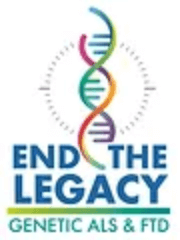Frontotemporal Dementia (FTD)
Frontotemporal dementia (FTD) associated with a mutation in the GRN (granulin) gene, often referred to as Frontotemporal dementia-granulin (FTD-GRN), is primarily caused by genetic factors. The GRN gene provides instructions for the production of a protein called progranulin (PRGN).
Not enough PRGN protein, it can be difficult for a part of a cell called a lysosome to work properly. This can cause a buildup of toxins. This buildup can affect the function of the cell. This can cause different conditions, including FTD.

“As a clinician who diagnosed and managed patients with FTD, I was often frustrated by the lack of awareness, support, and research into treatment for FTD. This disease strikes at a younger age than Alzheimer’s and often causes more social and financial stress. I am honored to be part of the effort here at Denali, along with patients and families, to develop a potential treatment.”
Richard Tsai, M.D. - Senior Medical Director at Denali Therapeutics
Denali’s scientific approach to FTD
Denali, in partnership with Takeda, is investigating DNL593, also known as TAK594. TAK594/DNL593 is an intravenously administered progranulin replacement therapy utilizing Transport Vehicle (TV) technology proposed to deliver progranulin across the blood-brain barrier (BBB) and into the brain.
A clinical study is being planned in the near future.
TAK594/DNL593 is an investigational drug, its clinical profile has not been established, and it has not been approved by any global health authority.
Advocacy Organizations
These organizations are committed to supporting the needs of people and families affected by FTD. Their websites may offer you more information, resources, and guidance.
By clicking these links, you will leave the Denali Therapeutics website and be redirected to a third-party site. Denali is not responsible for, nor does it endorse, the content, terms and conditions of use or privacy practices of external websites.
AFTD’s mission is to improve the quality of life of people affected by FTD and drive research to a cure.
Genetic ALS & FTD: End The Legacy is a patient-led organization dedicated to the needs and interests of the Genetic ALS & FTD community. This organization was born through the efforts and vision of dozens of people impacted by genetic ALS and FTD who collectively saw the need for the community's voice to be heard. In addition to patient advocacy, they provide educational and support information on their website.
The FTD Disorders Registry is a critical tool in advancing the science towards a cure for all types of FTD disorders. Anyone with a connection to FTD disorders can create an account. By joining the Registry and sharing insights on the lived experience of those with FTD disorders, participants drive research forward towards new treatments.
Denali values all FTD community members and organizations. Additional resources may be available.
For questions, please contact the Denali Patient Advocacy team at [email protected].



